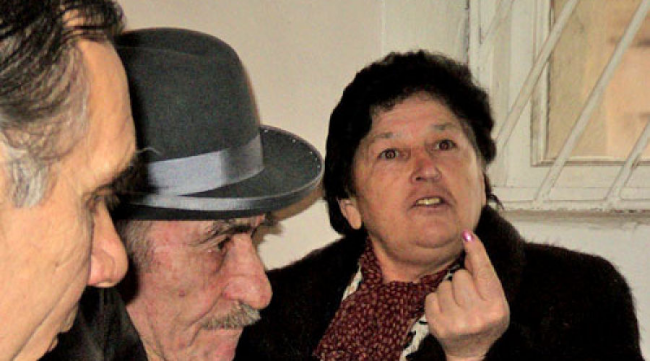

 The Supreme Court of Kabardino-Balkaria has denied compensation for ‘psychological damages’ to emergency workers from the Chernobyl nuclear disaster because they ‘filed their application too late’. In 2017, the European Court of Human Rights ruled that a group of ‘Chernobyl Liquidators’ — civilian and military personnel who worked to contain the effects of the 1986 disaster — were entitled to compensation previously withheld from them.
The Supreme Court of Kabardino-Balkaria has denied compensation for ‘psychological damages’ to emergency workers from the Chernobyl nuclear disaster because they ‘filed their application too late’. In 2017, the European Court of Human Rights ruled that a group of ‘Chernobyl Liquidators’ — civilian and military personnel who worked to contain the effects of the 1986 disaster — were entitled to compensation previously withheld from them.
On 28 April, a group of six liquidators asked the court to reverse its 2012 judgement depriving them of compensation they had previously been granted. In their argument, the group cited a November 2017 ruling by the European Court of Human Rights (ECHR) on their case which said the 2012 decision was illegal.
Magomed Abubakarov, a lawyer representing the liquidators, told OC Media that he received the court’s reasoning for its 12 July ruling only on 24 July.
According to him, the court refused their appeal because applications for review ‘must be filed within three months from the date of establishing grounds for revision’. As the European Court issued their ruling in November and the application for review was not filed until April, this deadline was exceeded.
Abubakarov said the court was using this as an excuse for denying their case. According to him, the delay in submitting the appeal was because the EHRC judgement had to be translated from English to Russian ‘taking into account specific legal terminology’, and that the ruling needed to be brought to the attention of the plaintiffs who were living throughout Kabardino-Balkaria, ‘which in the current realities of Kabardino-Balkaria, also took a lot of time’.
Abubakarov said he intended to appeal the decision and continue to seek a compensation not only for these six people, but for all the veteran Chernobyl Liquidators in Kabardino-Balkaria. A total of 120 liquidators applying to have the Supreme Court’s ruling overturned, according to Caucasian Knot.
‘They seized not only money, but also property’
In 2011, around 500 of the Chernobyl liquidators sued the Russian Ministry of Finance for psychological damages caused by illnesses resulting from their participation in the Chernobyl cleanup operation.
The Nalchik City Court upheld their complaints in part, awarding compensation of ₽1.1 million–₽1.8 million ($17,000–$29,000).
In 2012, referring to the fact that the law on compensation for moral damages was adopted only in 1994, and the accident occurred in 1986, the Supreme Court of Kabardino-Balkaria overturned the decision to grant compensation and ordered that money already paid be recovered.
Abubakarov told OC Media that while recovering compensation that had already been paid, ‘employees of the Bailiffs Service of the Russian Federation for Kabardino-Balkaria seized from disabled liquidators not only money, but, in some cases, property’. He said he had copies of documents as well as audio and video recordings showing that bailiffs exceeded their official powers.
‘For lack of the required money, the bailiffs took the Oka car of one Chernobyl victim — a person with a 2nd group disability, who had received this car from the state back in the early 1990s to facilitate his movement. Moreover, the car was taken by the bailiffs at a reduced value when seized, but sold at a higher price’, says Abubakarov.
In May 2013, the Kabardino-Balkaria Supreme Court reversed its decision to recover already paid compensation.
Kickbacks
In early 2013, the Investigative Committee of Kabardino-Balkaria opened a criminal investigation into suspected fraud in the payment of compensation to the liquidators. One of the lawyers of the liquidators Lera Alkhasova, Nalchik City Court judge Yelizaveta Botasheva, and Ali Kuchmezov, the local head of Soyuz Chernobyl, an advocacy group for victims of the Chernobyl accident were among the defendants.
Alkhasova was accused of embezzling ₽6.7 million ($110,000) intended as compensation. Several liquidators told investigators that they voluntarily gave her half of their compensation to pay as a kickback to the head of the legal department of the Kabardino-Balkaria Treasury and the federal judge from Nalchik City Court. Alkhasova confirmed this during a confession to police on 22 June.
Kuchmezov was placed in house arrest for one year pending his trial before being released. ‘My “fault” is only that, being the chairman of the NGO Soyuz Chernobyl and having a power of attorney from a number of veterans of Chernobyl, I received and transferred compensation money to those who do not have the physical ability to come and collect it personally’, Kuchmezov told OC Media.
The investigation into Alkhasova and Botasheva continues.





